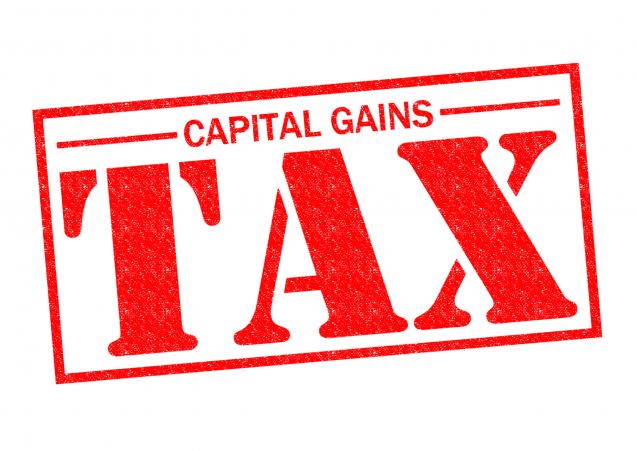
Backdated Property Valuations
By McLennan Steege Smith Property Valuations|January 08, 2019
If you’re selling your home or have inherited property, you may be surprised to learn you not only need to know the property’s value now but also its value on the day you or its previous owner bought it. Also called retrospective or historical valuations, backdated property valuations are the official determination of a property’s price on a date many months or years earlier.
You may need a backdated property valuation in the following situations:
When looking for property valuation firms to determine an accurate backdated property value, you need to find a firm that has plenty of experience in retrospective valuations in a wide range of property assets. Backdated valuations can be complex, so it’s important to choose wisely.
Why Do I Need a Backdated Property Valuation to Determine CGT?
Your liability for capital gains tax depends on how much your property has increased (appreciated) in value since you acquired it or the date you began using it as an investment property. Australian statutes have specific rules concerning paying CGT on properties that you purchased or inherited after 20 September 1985. Valuers conduct thorough research to determine the property’s value on the date in question.
What about Estate and Family Law Cases?
In these situations, the property value is for the day of the person’s death (in estate cases) or on the day of the separation (in family law cases). Since property values fluctuate from month to month, it’s important to get a backdated valuation to determine the property’s value accurately on the proper date.
Since these cases often involve family members or other heirs with conflicting interests, it’s even more important to have an unbiased, accurate property valuation. That’s why most states have enacted statutes that require retrospective valuations in case of future or current disputes.
What Happens in a Backdated Property Valuation?
For an accurate retrospective valuation, your property valuation specialist needs, at the minimum, the month and year. Unique properties, as well as heritage properties or those older properties that are currently in style (such as are Mid-Century properties), are challenging to evaluate. That’s why getting your valuation company right is so important.
An Extensive, Detailed Search
Experienced valuers will sort through extensive databases to search for the right historical market data that allows them to determine the right value at the right time. They look for descriptions of additions and renovations, such as
Searching for Errors
To get the most accurate value, your valuers may look through the original valuation if it’s available. They will scrutinise it thoroughly for any assumptions or errors. If they find such errors, they may be able to change the valuation based on their calculations.
Taking Market Changes into Consideration
Property values fluctuate regularly so the valuers will do extensive research into the market conditions over time. These changes can make a huge impact on both the sale price and the historical valuation of a property.
Historical Details Matter
Knowing the provenance (the records of the various owners and the changes they made) of a property helps valuers conduct a more accurate assessment of the property. Personal information and records, such as diaries and receipts can document changes and improvements. Historical photos that archive these changes are of great help to the valuers. Valuers typically cross-check these personal records with official records, such as inspections, permits, property transfers, and other information.
How to Choose the Right Property Valuation Firm
First of all, ask potential valuers if they utilise the International Valuation Standards. Created by the International Valuation Standards Council, these guidelines are the industry standard. Valuers should have a deep understanding of state and local laws as well since definitions and concepts vary by state and locality.
Look for these characteristics when you search for a property valuation firm:
Since backdated property valuations have a huge impact on your CGT and can affect your future net worth in family law and estate cases, it is important to use great discretion when you choose a property valuation firm. Knowing how property valuations work and what to look for in a property valuer gives you the confidence to choose wisely.
You may need a backdated property valuation in the following situations:
- Determining capital gains tax (CGT) for the sale of an investment property
- Separation from a spouse or partner or other family law issues
- Inheritance of properties in a deceased person’s estate
When looking for property valuation firms to determine an accurate backdated property value, you need to find a firm that has plenty of experience in retrospective valuations in a wide range of property assets. Backdated valuations can be complex, so it’s important to choose wisely.
Why Do I Need a Backdated Property Valuation to Determine CGT?
Your liability for capital gains tax depends on how much your property has increased (appreciated) in value since you acquired it or the date you began using it as an investment property. Australian statutes have specific rules concerning paying CGT on properties that you purchased or inherited after 20 September 1985. Valuers conduct thorough research to determine the property’s value on the date in question.
What about Estate and Family Law Cases?
In these situations, the property value is for the day of the person’s death (in estate cases) or on the day of the separation (in family law cases). Since property values fluctuate from month to month, it’s important to get a backdated valuation to determine the property’s value accurately on the proper date.
Since these cases often involve family members or other heirs with conflicting interests, it’s even more important to have an unbiased, accurate property valuation. That’s why most states have enacted statutes that require retrospective valuations in case of future or current disputes.
What Happens in a Backdated Property Valuation?
For an accurate retrospective valuation, your property valuation specialist needs, at the minimum, the month and year. Unique properties, as well as heritage properties or those older properties that are currently in style (such as are Mid-Century properties), are challenging to evaluate. That’s why getting your valuation company right is so important.
An Extensive, Detailed Search
Experienced valuers will sort through extensive databases to search for the right historical market data that allows them to determine the right value at the right time. They look for descriptions of additions and renovations, such as
- Kitchen and bathroom renovations
- Room additions
- Garage additions
- Amenities installations and updates
- Exterior property additions and improvements, such as a granny flat, an in-ground pool, storage shed, newly paved driveways and sidewalks, and many more
Searching for Errors
To get the most accurate value, your valuers may look through the original valuation if it’s available. They will scrutinise it thoroughly for any assumptions or errors. If they find such errors, they may be able to change the valuation based on their calculations.
Taking Market Changes into Consideration
Property values fluctuate regularly so the valuers will do extensive research into the market conditions over time. These changes can make a huge impact on both the sale price and the historical valuation of a property.
Historical Details Matter
Knowing the provenance (the records of the various owners and the changes they made) of a property helps valuers conduct a more accurate assessment of the property. Personal information and records, such as diaries and receipts can document changes and improvements. Historical photos that archive these changes are of great help to the valuers. Valuers typically cross-check these personal records with official records, such as inspections, permits, property transfers, and other information.
How to Choose the Right Property Valuation Firm
First of all, ask potential valuers if they utilise the International Valuation Standards. Created by the International Valuation Standards Council, these guidelines are the industry standard. Valuers should have a deep understanding of state and local laws as well since definitions and concepts vary by state and locality.
Look for these characteristics when you search for a property valuation firm:
- Extensive experience, formal qualifications, membership in the industry’s official organisations, and registration with state and local governing bodies
- Adherence to a strict code of ethics and the industry’s stringent standards
- Accurate, effective reports independent of any biases
- No-obligation, personalised quotes
- Guaranteed finish times that adhere to courts’ and ATO timelines
- Superb, personalised service and excellent communication
- Extensive knowledge of your local area and its history, particularly regarding properties and popular local architectural styles and trends down through the years.
Since backdated property valuations have a huge impact on your CGT and can affect your future net worth in family law and estate cases, it is important to use great discretion when you choose a property valuation firm. Knowing how property valuations work and what to look for in a property valuer gives you the confidence to choose wisely.



